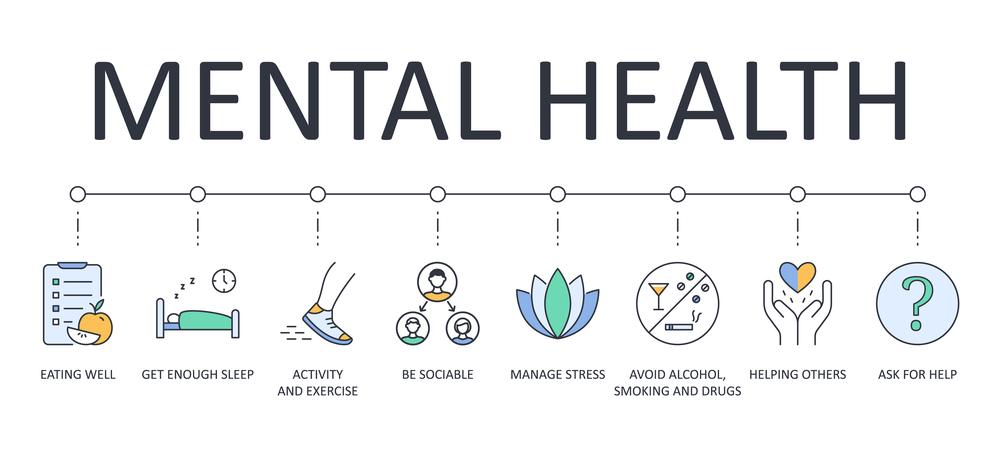As a BetterHelp affiliate, we receive compensation from BetterHelp if you purchase products or services through the links provided
In-home therapy, also known as home-based psychotherapy, provides a convenient solution for those who find it difficult to access mental health services outside their home. This type of therapy brings qualified professionals to your doorstep, offering customized treatment plans tailored to your needs. In-home therapy covers various services, such as physical, occupational, and speech therapy, and can address various mental health conditions.
For individuals dealing with acute or severe conditions, traveling to a clinic might be physically or mentally challenging. In-home therapy eliminates this barrier by bringing the therapy session directly to you, ensuring you receive the proper care and support without the added stress of leaving your home. This approach benefits children, adults, and caregivers alike, allowing therapy sessions to occur in a familiar and comfortable environment.
Key Takeaways
- In-home therapy provides convenient treatment for various mental health conditions and physical therapy needs.
- Professionals offer personalized therapy plans in the comfort and safety of your home.
- This approach caters to patients of all ages, making therapy more accessible in familiar environments.

What is In-Home Therapy?
In-home therapy, also known as home-based therapy or in-home counseling, is a service where a mental health professional provides therapy in the comfort of your own home. This approach offers a more personalized and convenient way to address mental health issues, making it easier for you to access care and support.
Depending on your needs, in-home therapy services can range from counseling sessions to behavioral interventions. This type of therapy is especially beneficial for individuals who have difficulty leaving their homes due to mobility issues, agoraphobia, or other health concerns. In-home sessions can be a great alternative to traditional office sessions, providing a more relaxed and familiar environment for you and your therapist.
There are several advantages to choosing in-home therapy over office-based sessions:
- Convenience: You don’t need to worry about transportation, traffic, or finding a parking spot – your therapist comes to you.
- Comfort: Receiving therapy in your home can help you feel more at ease and open up more readily, leading to a more effective therapeutic relationship.
- Flexibility: In-home therapists can often offer more flexible scheduling options, accommodating your busy schedule or atypical working hours.
- Family involvement: If needed, family members can be more easily included in the sessions, helping to improve communication and understanding among all parties involved.
Remember that not all therapists offer in-home services, so it’s essential to research and choose an in-home therapist specifically trained and experienced in offering this type of care.
To summarize, in-home therapy can be an excellent choice if you’re seeking mental health support but have difficulty attending regular office sessions. By opting for in-home services, you can still receive professional help in a comfortable and convenient setting that best suits your needs.
Benefits of In-Home Therapy
In-home therapy has numerous advantages, making it an appealing option for many patients and their families. Some of these benefits include:
- Mobility: For individuals with limited mobility or transportation challenges, in-home therapy provides the opportunity to receive treatment without traveling to a clinic or outpatient center. This can be particularly beneficial for patients with conditions such as Parkinson’s, multiple sclerosis, or those recovering from a stroke.
- Family Involvement: In-home therapy allows families to play an active role in the patient’s care and progress. This can lead to a more robust support system, better communication, and increased understanding of the patient’s needs and goals.
- Independence: Receiving therapy at home can help patients maintain their independence by focusing on activities and routines in their environment. This can be especially helpful for individuals managing chronic conditions such as heart disease, diabetes, or COPD.
- Privacy: Many patients prefer the privacy of receiving therapy at home, avoiding the potential discomfort or self-consciousness that can come with attending public therapy sessions.
- Stability: In-home therapy offers a consistent, familiar environment for patients. This stability can lead to better therapy outcomes, as patients may feel more relaxed and comfortable in their surroundings.
- Quality Care: In-home therapy is grounded in evidence-based practices and standards of care, ensuring patients receive high-quality treatment. Services like Care Compare allow you to check the quality scores of home healthcare providers.
In-home therapy can be an excellent option for many patients dealing with a wide range of conditions, including heart failure, Parkinson’s, multiple sclerosis, diabetes, and more. The numerous benefits, from increased mobility and independence to greater privacy and stability, can improve therapy outcomes and patient satisfaction.
 Types of In-Home Therapy
Types of In-Home Therapy
In-home therapy is an excellent option for those who have difficulty accessing mental health support in traditional settings. There are a variety of in-home therapy types that cater to the specific needs of individuals.
Counseling or Psychotherapy: These services involve a licensed mental health professional, such as a psychologist or counselor, coming to your home to provide talk therapy. This type of therapy can be helpful for those experiencing stress, anxiety, depression, or relationship issues.
Art or Music Therapy: Art and music therapy are therapeutic approaches that use creative expression to promote healing, self-awareness, and emotional processing. In this type of in-home therapy, a therapist will guide you through creative exercises tailored to your specific mental health needs in your home.
Family Therapy: Family therapy focuses on improving communication, resolving conflicts, and fostering healthier relationships among family members. A therapist comes to your home and works with you and your family in this therapy.
Teletherapy: Teletherapy is becoming more prevalent as technology advances, allowing you to remotely connect with mental health professionals. This therapy typically takes place via videoconferencing or phone, giving you the flexibility to receive support from the comfort of your home.
Physical, Speech, and Occupational Therapy: Although not directly focused on mental health, these in-home therapies can enhance overall well-being. A healthcare professional will work with you on improving physical skills, communication, or daily living activities, which can indirectly support your mental health.
Remember that each type of In-home therapy has its strengths and limitations. It’s essential to find one that works best for your specific needs. By exploring these options, you can find an in-home therapy approach that suits your lifestyle and supports your mental health journey.

In-Home Therapy for Children and Adults
In-home therapy is a personalized treatment approach aimed at supporting children and adults at risk of emotional and behavioral difficulties within familiar settings. By actively involving you, your family, and community resources, in-home therapy addresses various challenges to improve your overall stability and mental well-being.
This service is designed for all ages, catering to children and adults alike. In-home therapy for children primarily focuses on aiding their emotional and behavioral development, while therapy for adults targets self-care, mental health symptom management, and household management.
Education and training play a critical role in in-home therapy. Skilled therapists work closely with you and your family to build essential life skills, enhance social and communication competencies, and offer guidance in effective behavior management strategies.
In-home therapy programs collaborate with childcare providers, child protective agencies, and community support services, ensuring a comprehensive approach that caters to your unique needs. This coordinated effort ensures a safe, nurturing environment conducive to progress.
When engaging in in-home therapy, remember to:
- Communicate openly with your therapist to build trust and rapport
- Practice the skills and strategies provided by your therapist consistently
- Involve family members and support systems for a well-rounded approach
- Reach out to community resources, such as support groups and mental health services, for additional guidance
Remember that in-home therapy can be valuable in your journey toward a more stable, fulfilling, and mentally healthy life.
 Role of Therapists and Social Workers
Role of Therapists and Social Workers
As someone seeking in-home therapy, it’s crucial to understand the roles of therapists and social workers in your treatment journey. Both professions are vital in providing support, guidance, and resources tailored to meet your needs.
Therapists: The therapeutic relationship is at the core of successful therapy. Licensed therapists, who can come from diverse professional backgrounds, such as psychologists, psychiatrists, or counselors, facilitate this relationship. They listen to your concerns, identify your emotional and mental health needs, work with you to set achievable goals and develop strategies to overcome challenges. In-home therapists have the added benefit of assessing and addressing issues in your natural environment, which can contribute to a more accurate and personalized treatment plan.
Social workers: Social workers in in-home care settings are vital in addressing your emotional and mental needs and the broader psychosocial aspects of your life. They collaborate closely with the rest of the care team, including private practice therapists, to ensure that your treatment plan addresses every facet of your well-being. Here are some of the critical functions of social workers in in-home therapy:
- Evaluate your emotional, mental, and psychosocial needs and tailor support accordingly.
- Help you navigate the healthcare system, assisting with insurance matters and other logistical concerns.
- Provide crisis intervention and support as needed.
- Connect you with resources like support groups, educational materials, and other necessary services.
In summary, therapists focus on your emotional and mental health, while social workers assess your broader psychosocial needs and coordinate resources accordingly. Each professional plays a distinct yet complementary role in your in-home therapy journey, working together to support your growth and well-being. By understanding their roles and the unique expertise they bring to the table, you can better engage with these professionals and optimize your therapy experience.
Eligibility and Insurance Coverage
When considering in-home therapy, it’s essential to understand the eligibility criteria and insurance coverage options. Most insurance plans in the United States, including Medicare and Medicaid, cover physical therapy services. However, specific rules apply to home-care physical therapy.
Medicare and Medicaid Coverage
Medicare covers home health services, such as part-time or intermittent nursing care and physical therapy. To qualify for Medicare coverage, you need to meet specific eligibility requirements. These include being homebound and requiring skilled care. If you have spent at least three consecutive days in the hospital or have had a Medicare-covered skilled nursing facility (SNF) stay, Part A of Medicare will cover your first 100 days of home health care.
Similarly, Medicaid provides coverage for home health care services, including physical therapy. The In-Home Supportive Services (IHSS) program helps eligible aged, blind, and disabled individuals to receive assistance in their homes as an alternative to out-of-home care.
Insurance Plans and Coverage
Most private insurance plans also cover in-home therapy services. It is crucial to check your specific insurance plan to determine the coverage and eligibility requirements. Some insurance carriers may require a demonstration of significant barriers preventing you from leaving your house to receive therapy.
Amedisys
Amedisys is a home health care provider offering various services, including in-home physical therapy. They work with Medicare, Medicaid, and private insurance carriers to ensure coverage for eligible individuals who require therapy services at home. Check with Amedisys regarding coverage and eligibility criteria for your specific situation.
Understanding your eligibility and insurance coverage options is vital when considering in-home therapy. Review your Medicare, Medicaid, or private insurance plan, and consult with home health care providers like Amedisys to determine if you qualify for the services you need. By staying informed, you can make the most of available resources to receive the care you require in the comfort of your own home.
Recovery and Treatment Plan
After surgery, accident, or illness, your recovery journey will frequently require a personalized treatment plan tailored to your needs. Here is a brief overview of what to expect during your in-home therapy recovery and treatment journey:
Initial assessment: Your healthcare professionals will conduct a thorough assessment to identify your needs and limitations. This may include evaluating your mobility, strength, and ability to perform daily living activities.
Goal setting: Following the assessment, you and your therapy team will collaboratively set realistic and achievable goals. These objectives will be the foundation for your personalized treatment plan, focusing on health promotion and restoring function.
Multidisciplinary approach: An effective recovery plan considers various aspects of your health, including physical, emotional, and cognitive well-being. As such, your treatment team may comprise a range of specialists, such as physiotherapists, occupational therapists, speech pathologists, and mental health professionals.
Tailored interventions: Based on your individualized goals, the therapy team will develop specific interventions to target your areas of need. Some common in-home therapies include:
- Physical therapy: Helping you regain strength, mobility, and balance.
- Occupational therapy: Assisting with adaptations and strategies for daily living activities.
- Speech therapy: Supporting communication and language skills.
Monitoring progress: Throughout your in-home therapy experience, your therapy team will closely monitor your progress and adjust the treatment plan as needed. This ongoing assessment ensures that your plan remains practical and relevant to your changing needs.
Encouragement and motivation: Patience and perseverance are vital, as recovery may be slow and challenging. Having a support system of healthcare professionals, family, and friends will play a significant role in keeping you motivated and staying on track with your recovery goals.
Everyone’s recovery journey is unique, and reaching your goals requires time, effort, and consistency. Trust in your treatment plan, and stay committed to the process to achieve the best possible outcomes for your health.
 Therapy for Mental Health
Therapy for Mental Health
Dealing with mental health challenges like anxiety, depression, or personal crises can be overwhelming and exhausting. Incorporating in-home therapy services can provide the necessary support and treatment in the comfort of your own home.
In-home mental health therapy services are specialized to help you manage your mental health disorders, such as anxiety and depression. These services include education about your condition, emotional support, and cognitive-behavioral strategies to promote healthy coping mechanisms. By receiving therapy in your home, you can focus on your mental health and well-being without the added stress of traveling to appointments.
Anxiety can manifest in various ways, including physical symptoms, racing thoughts, and difficulty concentrating. In-home therapy for anxiety aims to help you recognize triggers, develop relaxation techniques, and practice self-care activities to reduce anxiety levels.
Depression affects mood, energy, and motivation, making everyday tasks challenging. In-home therapy for depression focuses on understanding the root causes, developing healthy coping strategies, and setting achievable goals to elevate mood and improve daily functioning.
It can be challenging to navigate emotions and thoughts during a personal crisis. In-home therapy offers professional support to help you process the situation, understand its impact on your mental health, and develop coping skills to rebuild and move forward.
Benefits of in-home mental health therapy:
- Personalized treatment plans tailored to your specific needs.
- Confidential and comfortable environment.
- Easier scheduling to accommodate your daily routine.
- Better engagement in the therapy process.
Key takeaway: In-home therapy services for mental health, like anxiety, depression, and personal crisis, can provide essential support and treatment in a comfortable and convenient environment, helping you overcome challenges and improve your well-being.
Role of Caregivers
As a caregiver, you play a crucial role in the life of a person who requires in-home therapy. Your responsibilities extend beyond providing physical care and assistance. Let’s explore the various aspects of the caregiver’s role in this context.
Education is key to being an effective caregiver. Familiarize yourself with the patient’s condition and therapy goals to provide informed support. Attend educational sessions, surf the internet, or read relevant materials to enhance your understanding of the patient’s needs.
Offering ethical care involves respecting the patient’s autonomy and privacy. Maintain a professional and compassionate demeanor as you help your loved one navigate their daily activities. While providing therapy support, be sensitive to their preferences and respect their decisions.
For patients receiving in-home therapy, their daily activities may require additional support. Assist them with bathing, dressing, mobility, and medication management. Adapt your strategies as therapy progresses and the patient’s needs change.
The caregiver’s role in relationship building is substantial. Establish trust and rapport with the patient and offer emotional support during challenging times. Encourage open communication so they feel comfortable discussing their concerns and therapy progress.
Pay attention to Park visits. These outings can have therapeutic value, offering natural surroundings, fresh air, and the opportunity to engage with others. Ensure safety and monitor fatigue levels while visiting the park to make the experience enjoyable for your loved one.
Cultivate confidence in your caregiving abilities. Trust in your knowledge and experience to provide optimal support for the patient. Your loved one will feel more secure and comfortable under your care as you become more confident.
In summary, as a caregiver providing in-home therapy support, you will be responsible for educating yourself, ensuring ethical care, assisting with daily activities, fostering relationships, monitoring park visits, and building confidence.
Home Health Care and Skilled Care
Home health care is a valuable service that provides medical assistance to individuals who need ongoing support for their health and well-being. This type of care is especially beneficial for people recovering from surgery or illness, those managing chronic conditions, and individuals affected by ALS.
Skilled Care Services
For more comprehensive care, skilled care is often necessary. This type of care is provided by trained healthcare professionals, such as:
- Nurses
- Physical therapists
- Occupational therapists
- Speech-language pathologists
These professionals work together to create personalized care plans that cater to your unique needs, helping you regain strength and mobility within the comfort of your own home.
Home Health Care for ALS
When battling conditions like ALS (amyotrophic lateral sclerosis), home health care and skilled care services can be invaluable assets. Professionals will tailor your care plan to address the specific challenges you face, such as:
- Muscle weakness and spasms
- Speech and swallowing difficulties
- Mobility issues
- Breathing problems
Apart from medical assistance, home health care providers offer hands-on health aide services, such as help with daily activities and personal care tasks.
Remember, home health care is meant to support your health and well-being in your environment. Consult with your healthcare provider to determine the best options for your needs and to create a suitable plan for in-home therapy. This customized approach will ensure you receive the attention and care you need to maintain the highest quality of life possible.
Frequently Asked Questions
What are the benefits of in-home therapy for seniors?
In-home therapy offers numerous benefits for seniors, including:
- Comfort and familiarity: Seniors can receive therapy in their environment, reducing stress and anxiety.
- Accessibility: In-home therapy eliminates the need for transportation to and from appointments.
- Personalized care: Therapists can tailor sessions to address specific needs, preferences, and goals.
- Greater independence: In-home therapy can help seniors maintain or improve their daily living skills, leading to increased independence.
Key takeaway:
In-home therapy provides a comfortable, accessible, and personalized approach to therapy for seniors, promoting greater independence.
How does in-home therapy differ from traditional therapy sessions?
In-home therapy differs from traditional therapy sessions in several ways:
- Location: In-home therapy occurs in the client’s home, while traditional therapy sessions usually occur in an office setting.
- Therapeutic approach: In-home therapy may incorporate various techniques, such as cognitive-behavioral therapy, multisystemic therapy, and psychoeducation.
- Flexibility: In-home therapy often allows for more flexible scheduling, making accommodating the client’s needs easier.
Key takeaway:
In-home therapy offers a unique location, therapeutic approach, and flexibility that sets it apart from traditional therapy sessions.
What types of services are provided by in-home therapists?
Services offered by in-home therapists may include:
- Assessment and diagnosis
- Individual and family counseling
- Cognitive-behavioral therapy
- Solution-focused therapy
- Crisis intervention
- Psychoeducation
Key takeaway:
In-home therapists provide various services to address their client’s unique needs and challenges.
Are there specific qualifications required for in-home therapy jobs?
In-home therapy professionals typically have qualifications similar to traditional therapists, such as:
- A master’s or doctoral degree in psychology, social work, or a related field.
- State licensure or certification as a psychologist, clinical social worker, or other mental health professional.
- Training and experience in the specific therapeutic approaches used in-home therapy.
Key takeaway:
In-home therapy jobs typically require the same education and licensure as traditional ones, with additional training in specific therapeutic approaches.
How does intensive in-home therapy compare to standard in-home therapy?
Intensive in-home therapy differs from standard in-home therapy in several ways:
- Frequency: Intensive in-home therapy typically involves more frequent therapy sessions, often multiple times weekly.
- Duration: Intensive in-home therapy may be provided for a shorter period, focusing on resolving a specific crisis or concern.
- Focus: Intensive therapy often targets specific behavioral issues or mental health concerns, while standard in-home therapy may address a range of issues.
Key takeaway:
Intensive in-home therapy offers a more targeted and time-limited approach than standard in-home therapy.
What insurance options are available for in-home therapy services?
Insurance coverage and payment options for in-home therapy services may vary depending on the provider and the client’s insurance plan. Some possibilities include:
- Private insurance: Some private insurance plans may cover in-home therapy services, depending on the plan and the provider.
- Medicare: Medicare may cover certain in-home therapy services for eligible beneficiaries if deemed medically necessary.
- Medicaid: Some state Medicaid programs may cover in-home therapy as part of their behavioral health services.
Key takeaway:
Insurance options for in-home therapy services vary, and it’s essential to verify coverage and payment options with your insurance provider and the therapy provider.
About Jacob Maslow
After surviving the traumatizing events of 9/11, I took it upon myself to heal through helping others. I’m the primary caregiver of my children and understand from first-hand experience the lonely paths you have to walk as a partner and parent when leaving an unhealthy relationship.
We’re all echoing in a dark space that doesn’t have to be this empty, and that’s been my mission since finding solace and recovery in therapy: To help comfort others who are still in shock and at the prime of their struggle.
I came across BetterHelp after searching for this type of community. I wanted to belong to a body of proactive therapists and supportive therapy veterans who allowed me to see other sides of the story.
It was unconventional, and that’s what attracted me most. During my most challenging times, when my ex-wife completely cut me off from my children, I found comfort and clarity through BetterHelp.
Instead of being chained to a strict therapist recommendation, I was in charge of who I felt understood my struggle most. That allowed me to find my true peace, as I was reunited with those who read behind my words and had first-hand experience with my trauma.
Recovery is a choice; with BetterHelp, that choice will be a few clicks away. You can join their couples-oriented platform, Regain.us, for those stuck with family estrangement and toxic relationship patterns.
- 3 Ways Wearing a Hat Can Help Lower Your Stress Levels - April 19, 2025
- Breaking the Silence: Why Men’s Mental Health Matters More Than Ever - April 15, 2025
- How to Transform a Home’s Patio Space into a Relaxing Space - March 23, 2025
This site contains affiliate links to products. We will receive a commission for purchases made through these links.


 Types of In-Home Therapy
Types of In-Home Therapy Role of Therapists and Social Workers
Role of Therapists and Social Workers Therapy for Mental Health
Therapy for Mental Health
